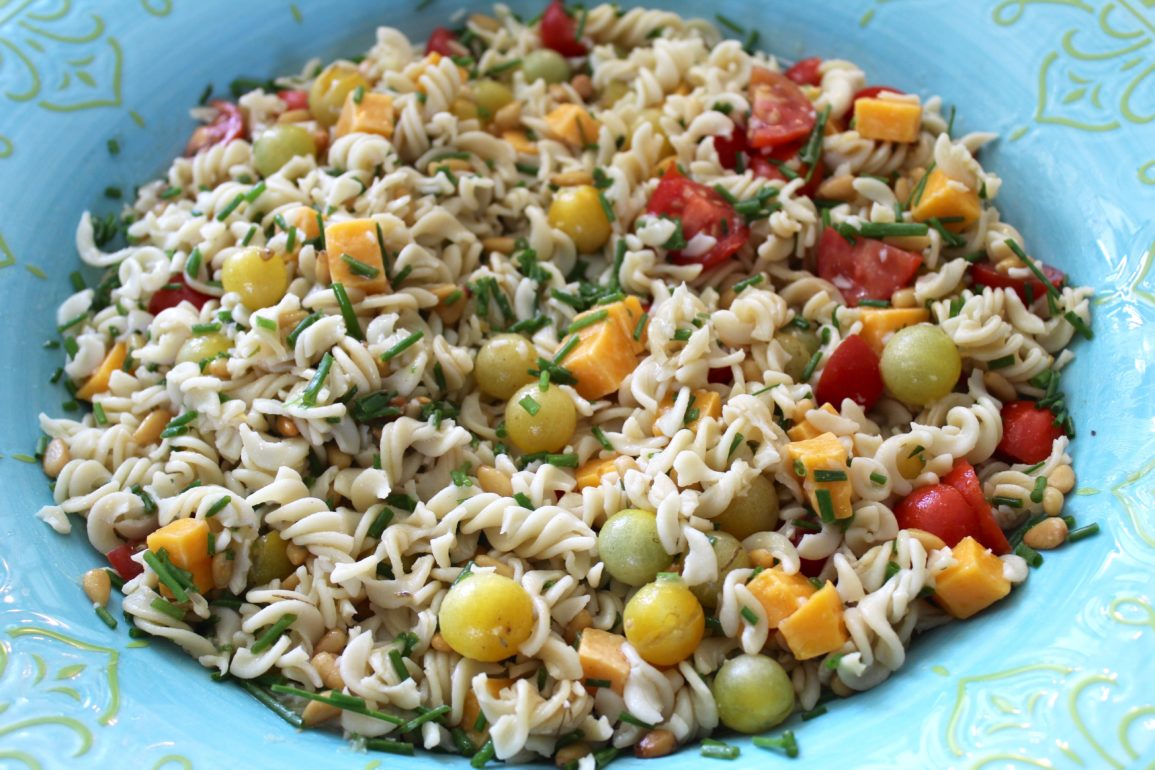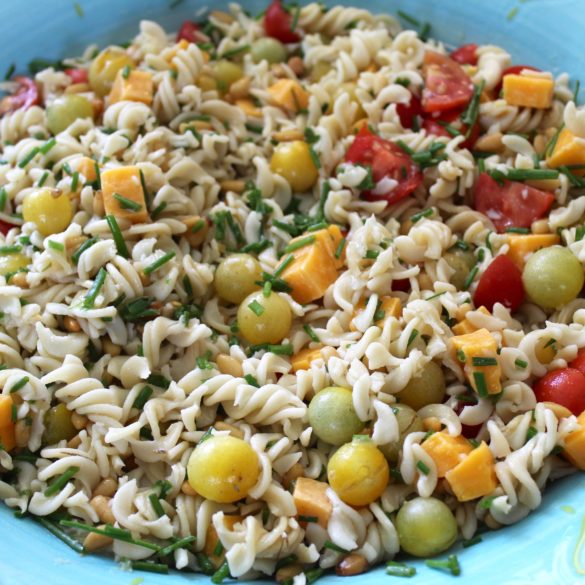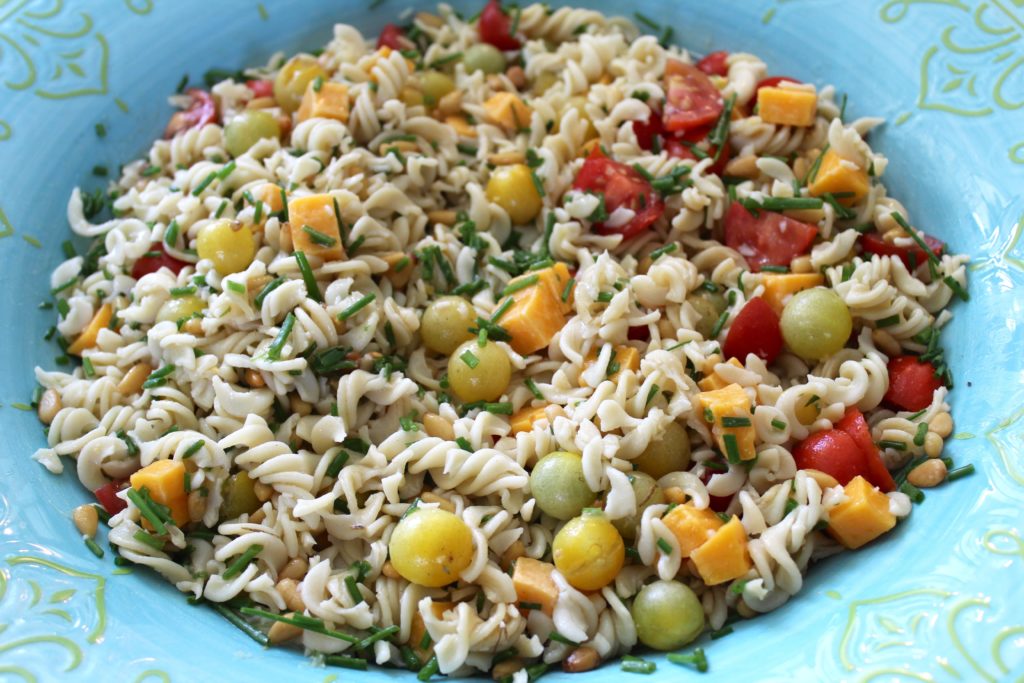By sharing traditional Jordan meals, Neda Schuck has created a community.
Floor-to-ceiling windows span two adjacent walls in Neda Schuck’s Muncie home. Bright sunshine illuminates the spread of food on her table. A pasta salad, made of rotini noodles mixed in with homegrown tomatoes and sharp cheddar cheese cubes, sits in a bright blue bowl. On a glass, footed dessert dish, spongy shortcakes are filled with a creamy lemon curd and topped with ripe, red strawberries. Neda’s headscarf, adorned with glittery silver and gold swirls, slightly sparkles as she bends down to sneak her 6-year-old basset hound, Tank, a bite of cheese from the salad.
The large glass windows are one of Neda’s favorite things about her home.
“On the cold winter days we have here in Indiana,” Neda says, “I love to feel the warmth from the sunshine because it reminds me of the warm weather we would have in Jordan.”
Neda was born in the United States and raised in Jordan, located in Southwest Asia. After moving to the U.S. for school as a young adult, she decided to stay. Neda still keeps her Jordanian roots in her daily life—including in the food she cooks.
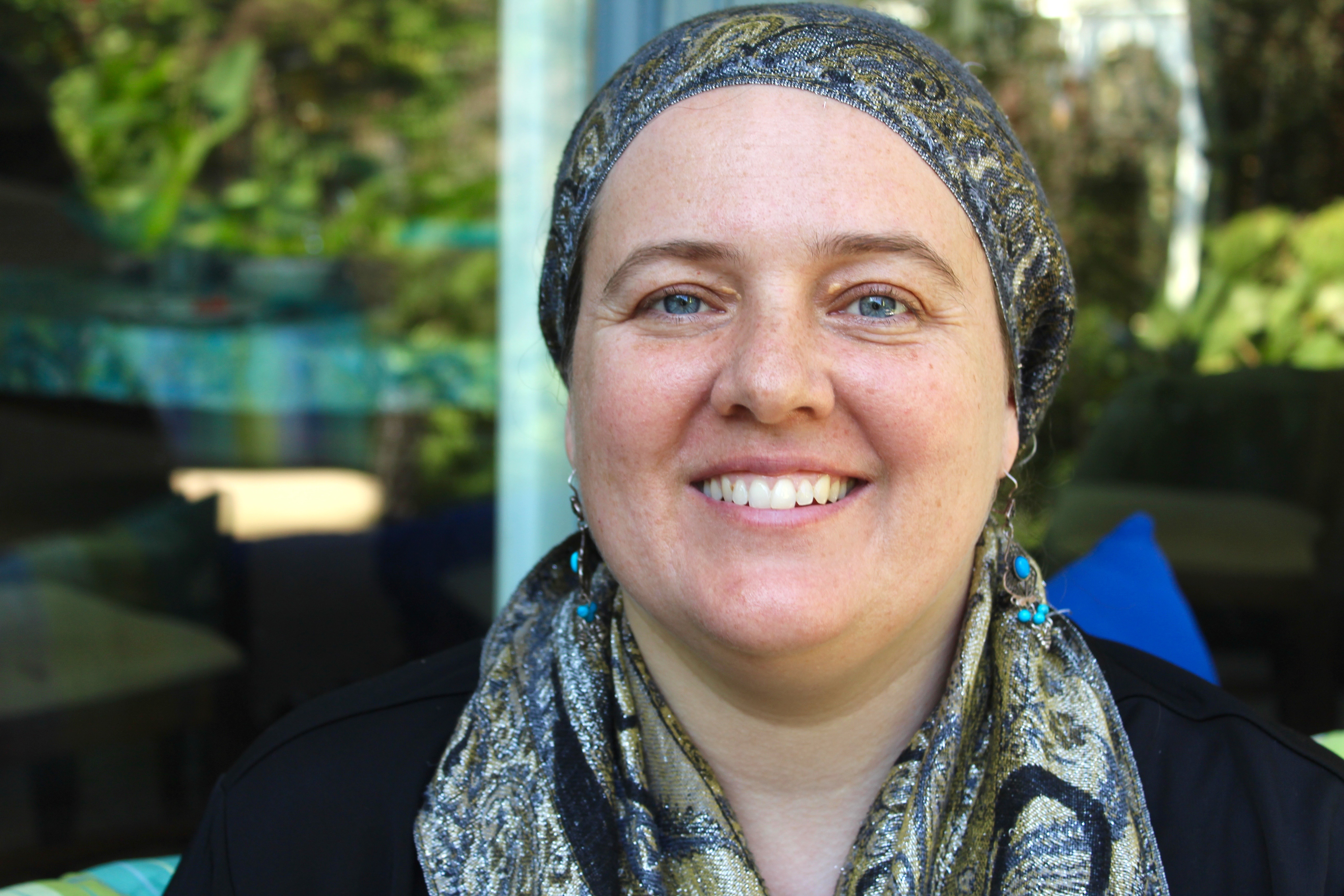
Early Start
When Neda was a child, her father made a plan: When Neda and her two siblings were all old enough, the three would move from their home country of Jordan to attend college in America. Neda’s dad studied at both UCLA and Stanford University. He knew the value of higher education in the U.S. and wanted the same for his children.
Neda was exposed to American culture before she moved to the country for school, though. Every two to three years, her parents would take Neda and her siblings to California to visit some family members who lived there.
While in The Golden State, Neda acquired a taste for the light and fresh foods that are staples in California’s cuisine. She devoured fresh fish and savory salads that were not only delicious but healthy, as well.
Boiler Up
Neda received her associate’s degree in the country of Lebanon, and then moved to West Lafayette, Indiana, with her two siblings to attend Purdue University.
When Neda arrived at school, she expected a range of food similar to what she found in California. However, the options available to her in the school’s dining halls surprised her. Instead of the seafood and salad options she loved on the West Coast, she encountered an abundance of junk food and bread-based items.
As a child, Neda was a very picky eater. She often refused to eat many of the bread and rice items that are usual staples in Middle Eastern culture. It’s not that she thought they tasted gross, Neda explains. But when she did eat these types of foods, her stomach would feel as if it were in knots.
At Purdue, when Neda ate these heavy items she often refused to eat back in Jordan, she began to experience the same stomach pains. The pain wasn’t random, she soon realized. Rather, as she later learned, she was actually gluten sensitive.
While at Purdue, Neda, routinely visited the same mosque in West Lafayette. Although everyone there shared her religion, they all came from different countries. Jordan, in general, was not a very diverse country, Neda says. She never thought about all the different individuals who also practice the religion until she was at college. Neda got the chance to know these individuals who taught her about their own cultures—and their own recipes that they cooked back in their native countries.
“You get to know people through their recipes that they share with you,” Neda says. 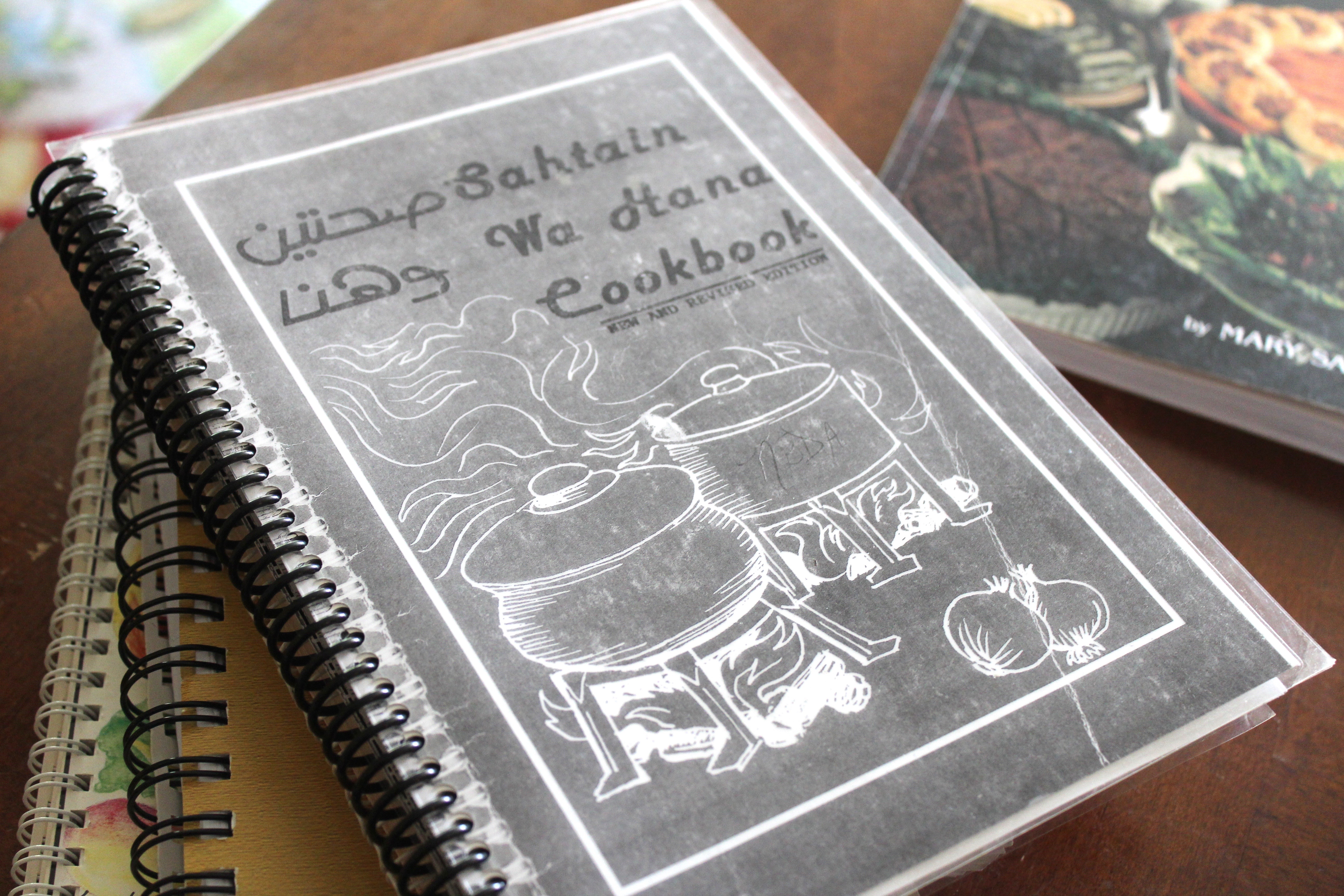
Learning and Sharing
As Neda and her peers did in college, she still loves to learn new recipes as well as share her own with her family, friends, and neighbors.
Neda’s husband is American. His mom taught Neda many “homestyle” meals that are popular in American diets—her favorite being a savory pot roast that simmers all day in a slow cooker and is then paired with rosemary potatoes.
Neda also frequents many of the restaurants in Muncie that serve traditional American food. She often goes to Ruby Tuesday, where she loves the fresh salad bar. She and her family also often visit Texas Roadhouse, where Neda always orders steak kabobs.
Those who have grown up and lived in America their whole lives are, somewhat surprisingly, actually the ones who are most open to trying her Jordanian foods, Neda says. She loves to share her recipes with her friends and neighbors because it’s a way of sharing part of her culture.
Neda also makes sure that her son, Zayd, is open to both American foods and Middle Eastern foods. He is a much less picky eater than she was as a child. One of Zayd’s favorite foods is stuffed grape leaves—something the typical 6-year-old would not even touch.
For Neda, food brings people together. When she first arrived in Muncie, she had trouble connecting with others. However, after she began to share her culture and recipes with others—as well as eating traditional American meals her neighbors made—Neda truly began to feel a sense of community.
Toasted Pine Nut Pasta Salad
Ingredients:
8 oz block cheddar cheese (1/2 lb)
2 C Cherry tomatoes
1 C Green onions
1/2 C Pine nuts
1/2 stick Butter
3 Lemons juice
Olive oil
1 bag gluten free macaroni pasta (can use normal pasta, if desired)
Salt
This story was originally published for the Harvesting Hope project. Read this story and others like it here.


